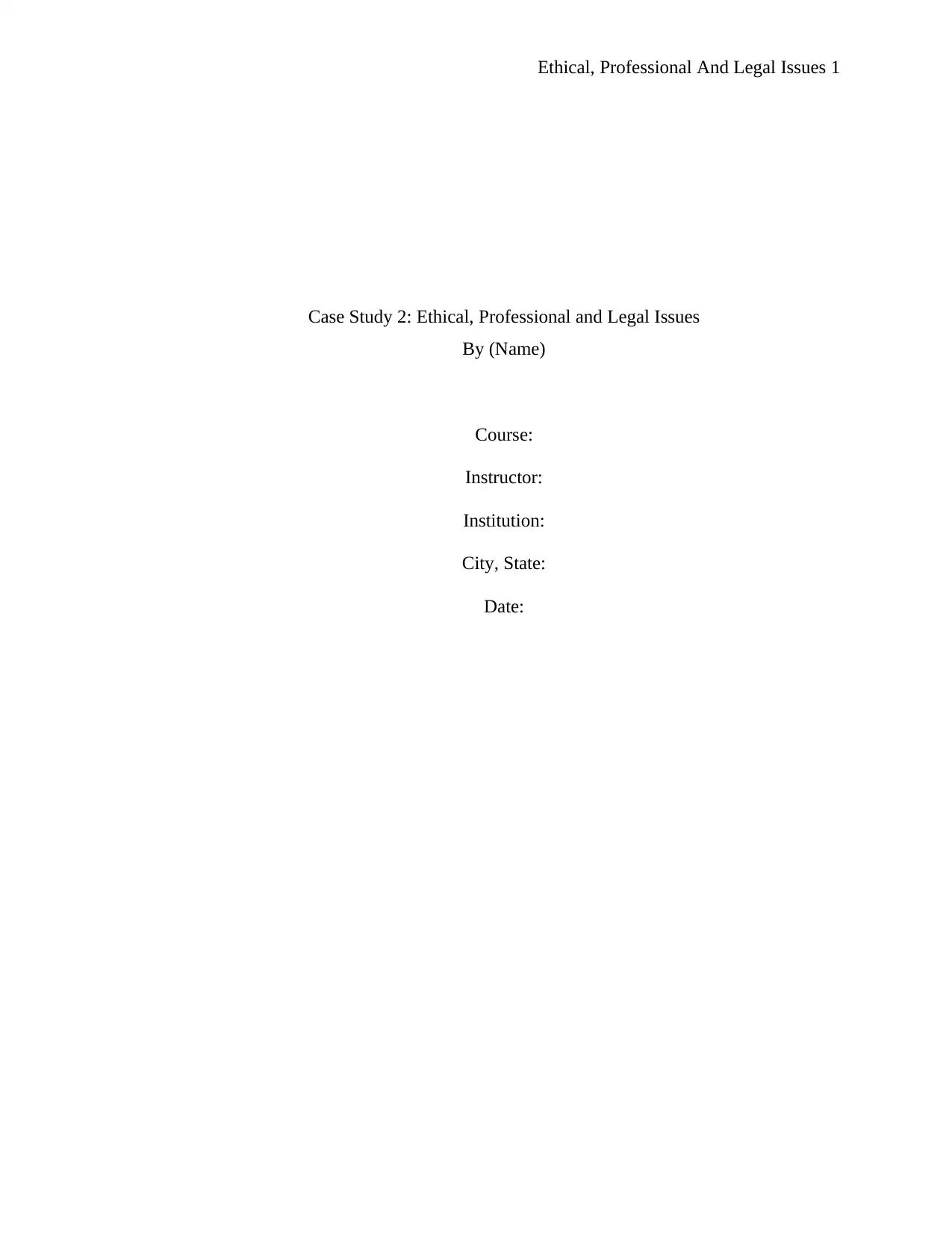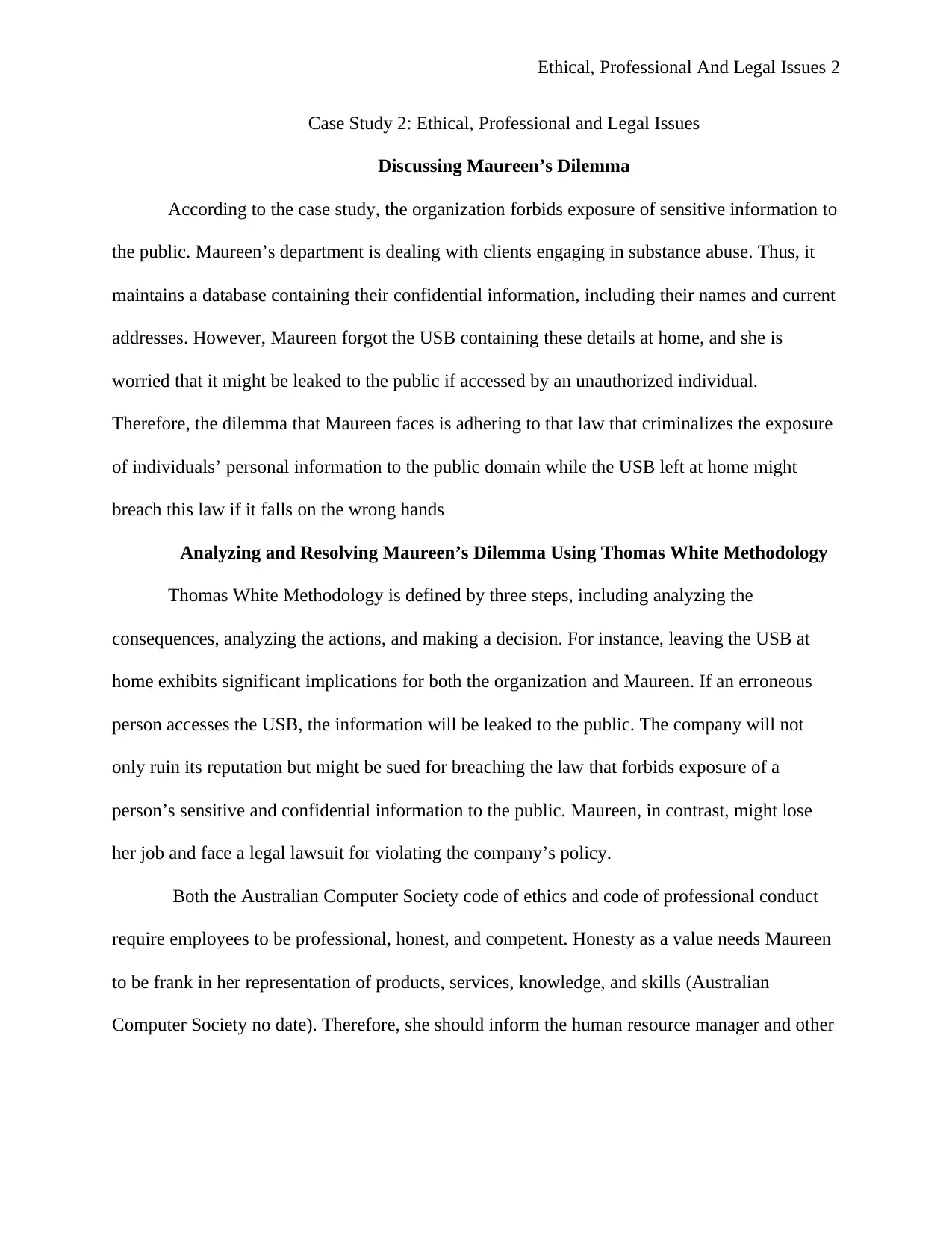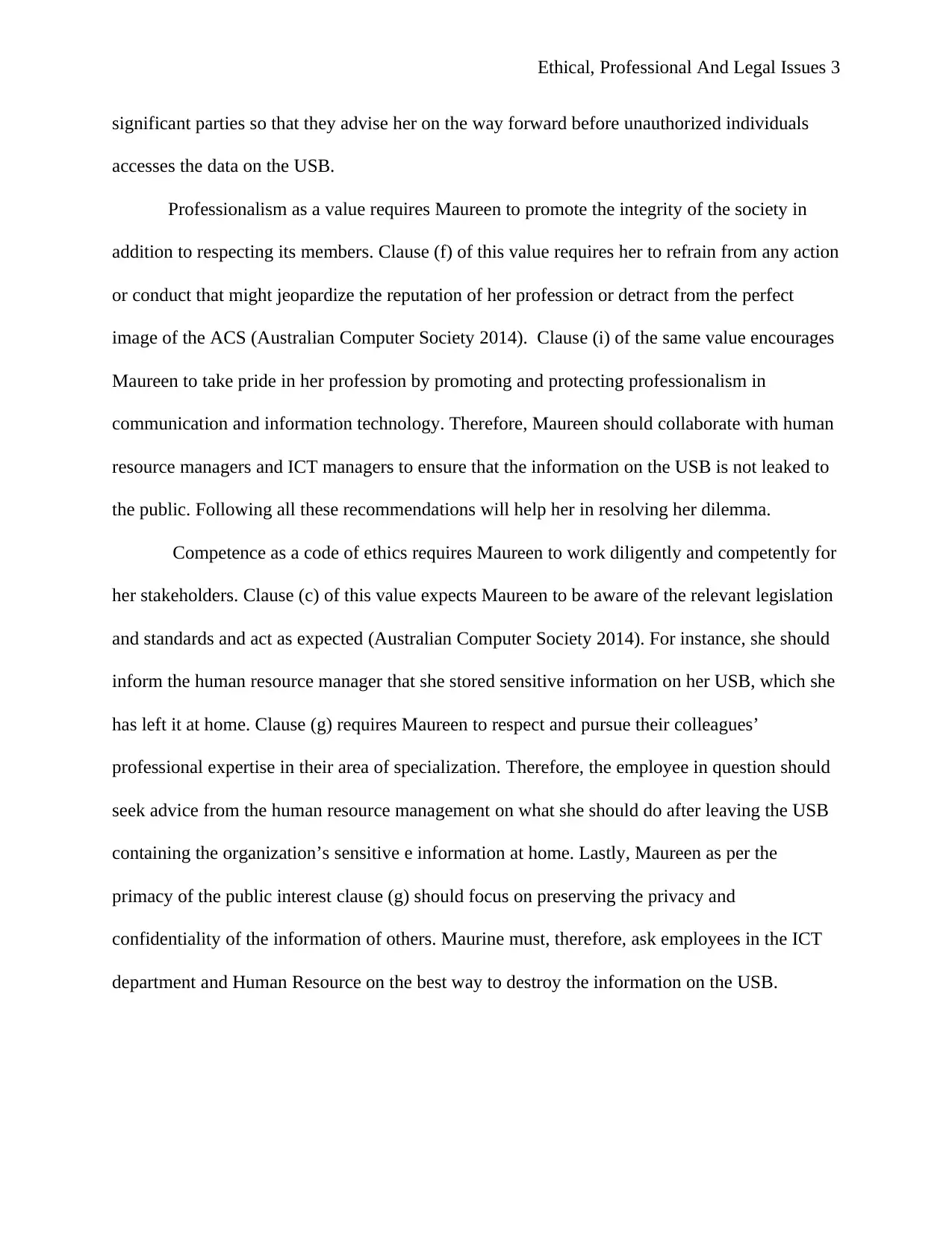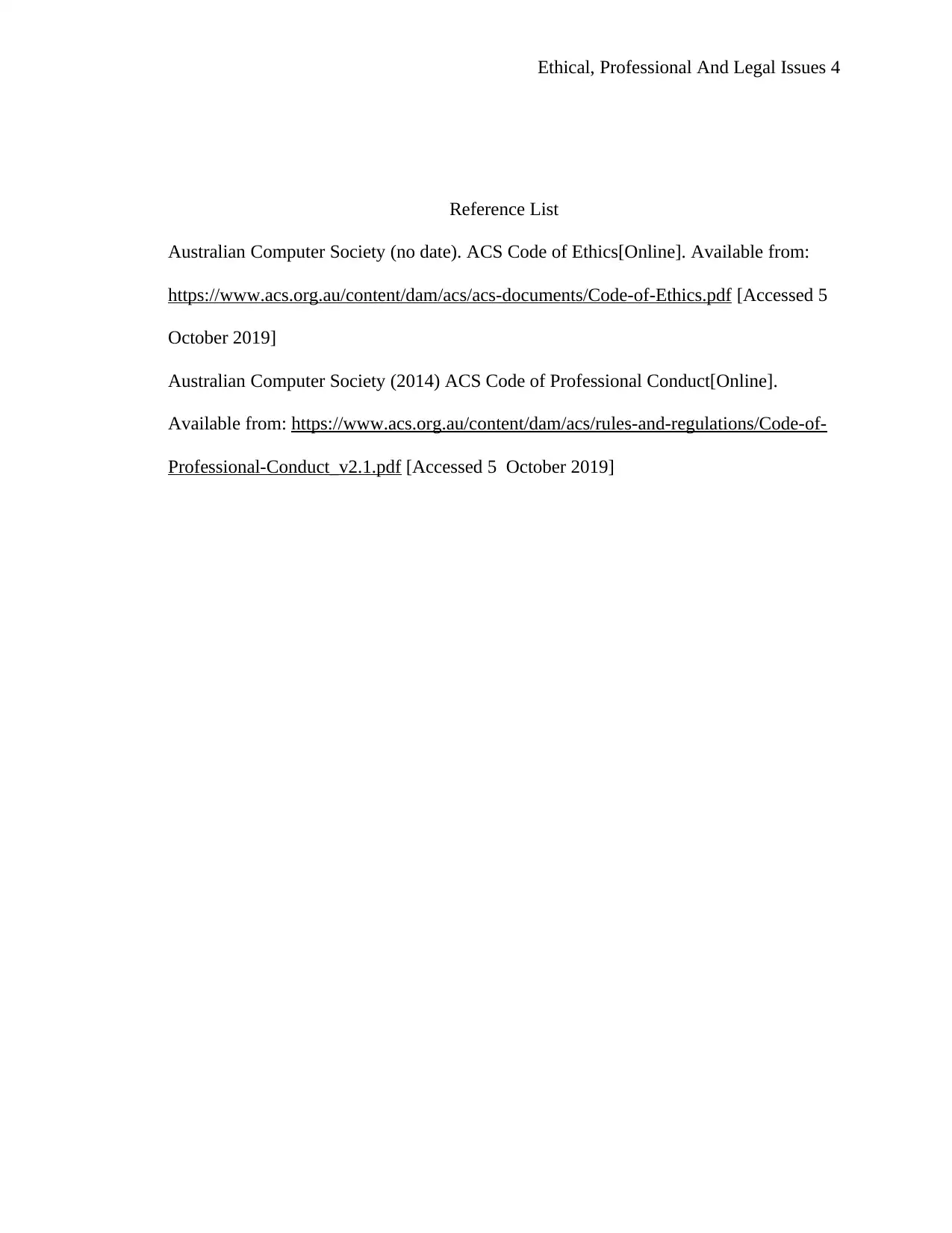Case Study 2: Ethical, Professional and Legal Issues Analysis
VerifiedAdded on 2022/10/01
|4
|743
|194
Case Study
AI Summary
This case study presents an ethical dilemma faced by Maureen, an employee in a government department dealing with substance abuse. Maureen accidentally leaves a USB drive containing sensitive client information, including names and addresses, at home, raising concerns about potential breaches of confidentiality and legal violations. The analysis employs Thomas White Methodology to evaluate the consequences of the situation and determine the appropriate course of action, referencing the Australian Computer Society's code of ethics and professional conduct. The study emphasizes the importance of honesty, professionalism, and competence in resolving the dilemma, including informing relevant parties and taking steps to secure the data. The case also touches upon ISO 19600 standards for compliance management, highlighting the significance of maintaining integrity and avoiding noncompliance issues in organizations.
1 out of 4











![[object Object]](/_next/static/media/star-bottom.7253800d.svg)